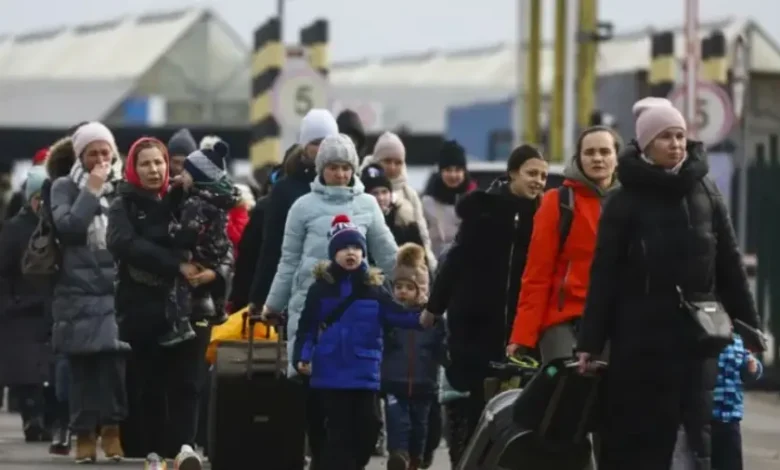Alarming signal: the number of Ukrainians who did not return home last year increased by 3.3 times

Ukraine has been experiencing a full-scale war for almost three years, which is not only changing its landscape, economy and security, but also creating a serious demographic crisis. Mass emigration has become one of the biggest threats to the country’s future. More and more Ukrainians are moving abroad in search of safety, stability and better living conditions. The fact that a large part of those who left the country do not return is extremely worrying. Only in 2024, the number of Ukrainians who did not return after leaving increased by 3.3 times. If this trend continues, the consequences for Ukraine could be catastrophic — the loss of the workforce, a decrease in the number of taxpayers, a shrinking population and, as a result, a weakening of the economy.
Statistics of departure and non-return in 2024
For data According to the Administration of the State Border Service of Ukraine, in 2024, Ukrainians crossed the country’s borders 30.11 million times. Of these, 2% of those who left did not return home. This is about 443 thousand citizens. For comparison: in 2023, this figure was 134,000, which indicates a 3.3-fold increase.
The worst situation was observed in June, when the number of Ukrainians who did not return reached 194,000. For the whole year, only in three months (April, July and August) did the number of returns exceed the number of departures. In total, for almost three years of war, according to official data, almost 3 million people left the country and never returned.
Reasons for mass non-return
Among the key reasons for non-return of Ukrainians is the search for a safe environment, a higher standard of living, stable social guarantees and opportunities for employment abroad. The war intensified these trends, forcing millions of people to seek refuge in the European Union and other countries.
As of August 2024, 4.2 million Ukrainians have received temporary protection status in EU countries. Most of them are in Germany (1.1 million), Poland (975 thousand) and the Czech Republic (376 thousand). These countries have created favorable conditions for the integration of refugees, giving them access to medicine, education and work, which significantly reduces the motivation to return to Ukraine.
Consequences for Ukraine
Mass emigration and non-return of citizens have a profound effect on the country. Ukraine is losing qualified labor force, which creates a shortage of specialists in many industries. This, in turn, slows down economic development and weakens the country’s ability to recover from the war.
The decrease in the number of taxpayers worsens budget revenues, which limits the state’s ability to finance social programs, infrastructure restoration, and other critically important projects. In addition, population decline leads to a demographic crisis that will have long-term consequences for Ukraine.
In order to change the situation, Ukraine must create conditions that will encourage citizens to stay in the country or return home. This involves ensuring security, developing the economy, creating jobs and improving the quality of life.
An important step is also active cooperation with the countries that receive Ukrainian refugees, in order to encourage citizens to return after the end of the war. Investments in the reconstruction of destroyed infrastructure, the creation of programs for youth and professional retraining can become the basis for the return of people and their involvement in the reconstruction of the country.
Mass emigration of Ukrainians is a serious problem for Ukraine that requires an immediate response. Preservation of human potential is a key task on which the future of the state depends. The authorities must make every effort to return their citizens, create favorable living and development conditions for them, and ensure stability and confidence in the future. This is the only way to stop the demographic crisis and preserve the potential for the revival of the country after the war.





